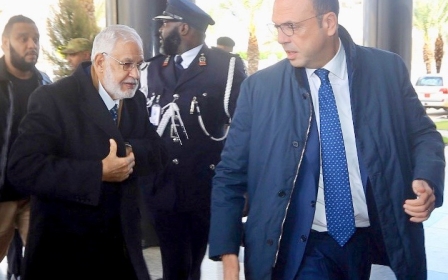Libya sends 142 migrants back to Guinea
Libya put 142 migrants on a flight back to Guinea in western Africa on Wednesday with the help of the UN migration agency, officials said, as the North African country steps up deportations to ease severe overcrowding in its detention centres.
The number of people stuck in Libyan detention centres has risen dramatically this year since armed groups shut off the boat route to Italy from the smuggling hub of Sabratha to a trickle.
The deportations come in the wake of a CNN report on migrants being sold for slave labour that sparked an international outcry.
Migrant flows through Libya have surged since 2014. More than 600,000 people have made the journey to Italy in the past three years, but departures from Libya's coast dropped sharply in July when armed groups in Sabratha began preventing boats from leaving.
After clashes in the western city in September, thousands of migrants being held near the coast were transferred to detention centres under the nominal control of the UN-backed government in Tripoli.
Amnesty International said this month that as many as 20,000 people are being held in detention centres and are subject to "torture, forced labour, extortion, and unlawful killings". Other human rights organisations have made similar statements in recent months.
“European governments have not just been fully aware of these abuses; by actively supporting the Libyan authorities in stopping sea crossings and containing people in Libya, they are complicit in these crimes,” Amnesty’s Europe director, John Dalhuisen, said in a statement earlier this month.
Stay informed with MEE's newsletters
Sign up to get the latest alerts, insights and analysis, starting with Turkey Unpacked
Middle East Eye delivers independent and unrivalled coverage and analysis of the Middle East, North Africa and beyond. To learn more about republishing this content and the associated fees, please fill out this form. More about MEE can be found here.




